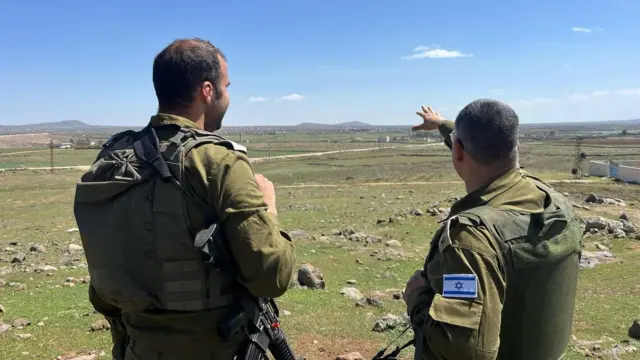Israeli Report Reveals Coordination with Turkey on Military Activity in Syria
By Kardo Roj
DAMASCUS, Syria (North Press) – Israel is engaged in ongoing discussions with Turkey to coordinate military operations in Syria, according to a report published Monday by Israeli daily Yedioth Ahronoth, highlighting deepening regional military alignments amid Syria’s fractured sovereignty.
The report, citing senior Israeli military officials, comes in the wake of a brief Israeli incursion into the al-Quneitra countryside in southern Syria late Sunday. Israeli forces reportedly withdrew from the area of Rasm al-Halabi by Monday morning, following a short-term presence that resembled tactics used in the West Bank, including surprise checkpoints and mobile patrols.
One high-ranking Israeli officer told the paper that Israel conducts rapid operations based on intelligence alerts. “If we get a warning about a hostile actor, we strike immediately and without hesitation,” the officer stated.
Most notably, the report underscored that Israel and Turkey are holding regular talks regarding their respective military activities in Syria. Though no formal alliance exists between the two regional powers in this theater, coordination appears to be focused on avoiding direct confrontation and deconflicting air and ground operations in northern Syria, where Turkish forces maintain a significant presence.
The revelation points to the evolving military landscape in Syria, where overlapping operations by various state and non-state actors—including Israeli, Turkish, Russian, and Iranian forces—pose constant risks of escalation.
A senior Israeli officer quoted in the report offered a stark assessment of Syria’s current state, noting that Damascus “continues to struggle to unify authority” and lacks effective control over much of the country. He added that the government’s reach does not extend meaningfully to several key regions: the Alawite-dominated coastal areas, Turkish-controlled zones in the north, territories administered by Kurdish-led forces, and the Bedouin-populated southeast.
The Israeli assessment reflects the entrenched divisions within Syria, now in its fifteenth year of conflict. Large swathes of the country remain under the control of various actors: the government in Damascus, Turkish-backed Syrian National Army (SNA) factions in the northwest, Hayat Tahrir al-Sham (HTS) in Idlib, and the Autonomous Administration of North and East Syria (AANES), supported by the Syrian Democratic Forces (SDF), in the northeast.
While Israel’s operations have largely focused on curbing Iranian influence and Hezbollah entrenchment near its borders, the coordination with Ankara may be aimed at ensuring freedom of movement in areas where Turkish forces and affiliated Syrian factions operate.
This development raises concerns about the implications for Syria’s sovereignty and the potential sidelining of local actors who have played key roles in maintaining regional security and governance, particularly in the relatively stable northeast.

